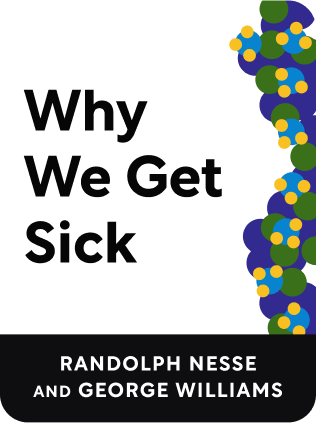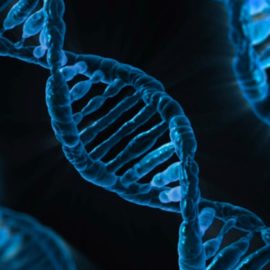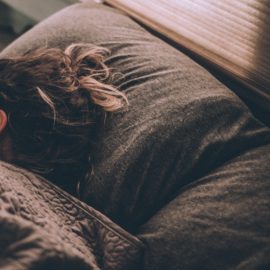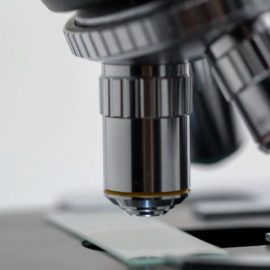

This article is an excerpt from the Shortform book guide to "Why We Get Sick" by Randolph Nesse and George Williams. Shortform has the world's best summaries and analyses of books you should be reading.
Like this article? Sign up for a free trial here .
Why do we get a fever when we get sick? Should we treat the symptoms of our illnesses? Are symptoms just defenses against illness by the body?
The body has created natural defenses to combat infections. While symptoms may seem like they are part of the sickness, they are usually part of the solution. Sometimes treating a symptom can actually delay the body’s healing process.
Keep reading to learn about the body’s defenses against sickness.
Symptoms Are the Body’s Defenses
The war with bacterial and viral pathogens has gone on for millions of years and continues today. We have developed bodily defenses to combat infections, and in turn the pathogens evolve ways to overcome these defenses.
The body is a collection of compromises. Maintaining the defenses at all times would be too costly—there’s no need to raise defenses when there are no pathogens around.
When the defenses do activate, they sometimes cause symptoms that appear to be the disease. In reality, the symptoms are the defense mechanisms at work. If this hypothesis is true, then treating these symptoms can counter-intuitively aggravate and lengthen the infection.
Examples of the Body’s Natural Defenses
- Fever increases effectiveness of the immune system. While it might superficially seem like the pathogen is causing the fever directly as a result of its havoc, in actuality the fever is our defense against infection.
- In fact, syphilis was once treated by infecting the patient with malaria, which would induce a fever. This discovery won the 1927 Nobel Prize in Medicine!
- Why don’t we have a fever all the time? Because fever depletes nutrient reserves 20% faster, causes temporary male sterility, and it may cause tissue damage.
- During infections, the body depletes iron to limit bacterial reproduction. Bacteria need iron to reproduce.
- The body circulates proteins (called leukocyte endogenous mediator) to decrease blood iron availability. Furthermore, the protein transferrin circulates in blood and binds iron, sequestering iron away from bacteria.
- This even affects our behavior—when sick, we tend to dislike iron-rich foods like ham and eggs.
- There’s more suggestive evidence—egg white protein is 12% conalbumin, which binds iron, and thus keeps eggs fresh. Similarly, human milk protein is 20% lactoferrin while cow milk is 2% lactoferrin; breast-fed babies have fewer infections than bottle-fed babies.
- Counter-intuitively, giving iron supplements in famines can increase fatal infections, since the body hasn’t had a chance to develop transferrin.
- When a local body part is infected, we feel pain. This reduces the use of damaged tissue that can compromise reconstruction and defensive mechanisms. The pain also causes us to remember the event that caused the infection, and to avoid the same situation in the future.
- There’s suggestive evidence of the use of pain—a rare genetic disease prevents some people from feeling any pain, including pain from injury or illness. Nearly all of these people die by age 30.
- When sick, we secrete mucus. The mucus traps pathogens, then coughing up mucus dislodges it to be swallowed, so that the digestive system kills pathogens and recycles the protein in mucus.
- During illness, diarrhea causes ingested pathogens to be expelled more quickly.
Should You Treat the Symptoms?
In all these defense mechanisms, treating the symptom for the sake of comfort might compromise recovery and worsen the illness.
But not all defenses are adaptive or essential, and sometimes there isn’t a need to suffer without reason. The authors of Why We Get Sick aren’t suggesting never relieving these defenses, but rather to be mindful of when relief is and isn’t net positive.
- This line isn’t often easy to realize—studies that show that remedies aren’t effective are unlikely to get funded by industry. For example, medical companies are unlikely to fund a study that shows that nasal sprays delay recovery from cold.
Other Adaptations for Bodily Defense
Even when we’re not in an active infection, the body has a host of defenses that prevent disease. These include:
- Protecting the skin. Scratching and grooming removes parasites.
- Taste receptors detect bitterness. Toxins tend to be more bitter than edible foods, and disliking bitterness makes us avoid toxins.
- When in the body, toxins pass by the chemoreceptor trigger zone, the only part of the nervous system where brain cells are directly exposed to blood. Toxins trigger nausea and vomiting. This is why many drugs, like chemotherapy, are nauseating—they are in effect toxins to the body.
- The authors propose that the function of menstruation is to shed the uterine lining to defend against uterine infections, especially sperm-borne infections. This helps justify the substantial cost of menstruation.
- The suggestive evidence is that menstrual blood differs from circulating blood in ways that destroy pathogens while minimizing the loss of nutrients.
- Furthermore, species that have sex less often, in distant fertile periods, tend to menstruate less than humans do.
- Other researchers counter that the evidence doesn’t completely line up—menstruation doesn’t increase with infection, and there’s no consistent relationship between the amount of sperm females are exposed to and the amount of menstrual flow. This is an example of how good biological hypotheses are testable.

———End of Preview———
Like what you just read? Read the rest of the world's best book summary and analysis of Randolph Nesse and George Williams's "Why We Get Sick" at Shortform .
Here's what you'll find in our full Why We Get Sick summary :
- Why evolution hasn't rid humans of all diseases
- How reproductive fitness is more important than overall survival
- How you evolved to dislike the sound of a baby crying






